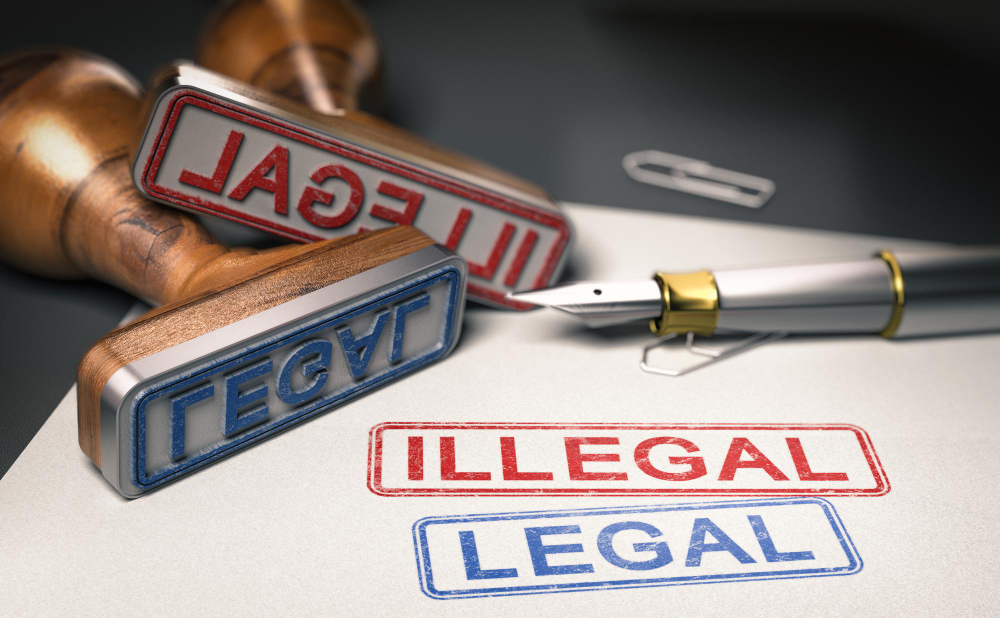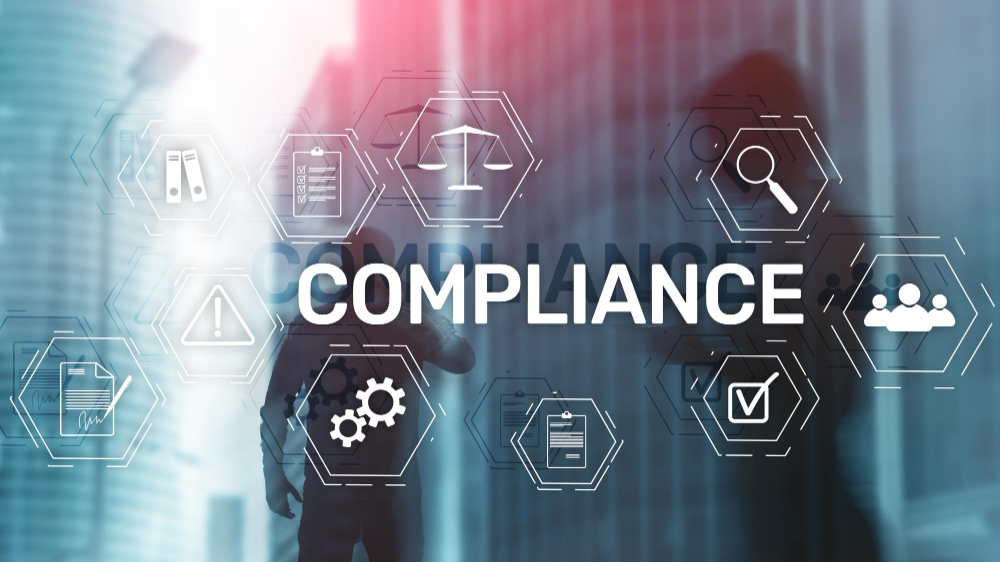Saudi Arabia’s New Anti-Commercial Concealment Law

By: Albandri Alotaibi
Saudi Arabia’s Council of Ministers passed a new Anti-Commercial Concealment Law in August 2020. The legislation was enacted in order to eliminate the shadow economy, or underground economy, and to limit the forms of concealment. The act stipulates harsh punishments such as prison time and fines, as well as whistleblower protection in anti-commercial concealment cases. The legal changes aim to ban the use of locally issued business licenses as “veils” by unidentified foreign parties who are quietly engaged (usually in SMES).
The government had previously established a ministerial committee to combat commercial fraud and the practice of veiling in small businesses. Foreigners who own companies registered in the names of Saudi citizens will continue to be investigated by the new committee. In addition, advanced stages of collaboration between business licensing and visa-issuing authorities will start happening.
Commercial concealment is described as any illegal commercial activity that promotes or encourages non-Saudi individuals or businesses to engage in or participate in business practices that they are not permitted to engage in, The primary objective of enacting the regulation is to avoid the detrimental effects of commercial secrecy. There are a number of negative consequences, including a loss of consumer interest due to a lack of equal opportunity.
This inequity encourages corruption, raises the cost of doing business in the Kingdom, and encourages money laundering and economic fraud. Furthermore, it exacerbates social problems such as theft and drug trafficking. Commercial concealment is, in this context, one of the main reasons for expats seeking work illegally breaking residency and job regulations. Moreover, one of the most detrimental consequences of commercial concealment is the illegal practice of foreigners who come to the country posing as visitors but are just looking for work.
Saudi citizens have collaborated to the escalation of the crisis by illegally recruiting foreigners to work in their homes, resulting in a rise in commercial concealment and the local unemployment rate. As a result, the government developed a National Program to Combat Commercial Concealed Carriers. It was implemented to encourage e-commerce, promote the use of technology innovations, monitor the outflow of funds, promote private sector expansion, create jobs, and enable Saudis to invest and find solutions to the problem of foreigners’ illegal ownership in the private sector. It has the ability to enable people to own and operate businesses in a variety of fields of trade and finance, as well as to provide funding and financing services.
The National Transformation Program 2020 opened the framework for the growth of regulations and legislation, as well as increased censorship and raised awareness of criminal cover-ups in all sectors. In Saudi Arabia, commercial banks applied the “Know Your Customer (KYC) rule to all transactions in order to avoid profits from illegal activities such as commercial deception. Commercial secrecy is a serious economic and financial disease that wreaks havoc on every country’s business environment. The Saudi government is committed to battling it in order to ensure a stable and equitable business environment.
According to the Ministry of Commerce and Investment. Judicial penalties for the violators under the previous law included two years in prison and a fine of SAR 1 million per prisoner in the other hand the new law in result gives five-year suspensions and fines of up to SAR 5 million, . Under the previous statute, two years of imprisonment and a fine of SAR 1 million per convict is stipulated as civil punishments against violators. This is to remove the sources of the phenomenon by addressing the root cause of the occurrence, The current legislation requires the responsible government authorities, in conjunction with the Ministry of Commerce. as well as, to regulate crimes and violations relating to commercial concealment; and, in order to carry out the needed follow-up on such facilities, each authority granting licenses to carry out economic activity must notify the Ministry of any suspicion relevant to the commercial activity. In addition to other forms of testimony, the new law empowers the responsible parties to use technology to prove commercial concealment offenses and violations by “Electronic Proofs.”
The new legislation includes the concept that the penalty for an infringer who comes alone to advise or disclose a crime of cover-up in accordance with strict controls could be reduced or eliminated. It should be remembered that the new Anti-Commercial Concealment Law aids in the motivation of small and medium-sized businesses while also protecting customers from the harmful consequences of cover-ups.
Importantly, according to the provisions of this law, the Ministry of Commerce is in charge of monitoring, receiving reports, and regulating crimes and violations. The new Anti-Commercial Concealment Law is expected to help motivate small and medium-sized enterprises to become more transparent, offer greater opportunities for entrepreneurial Saudis to participate in small and medium-sized enterprises, and protect consumers from the negative effects of veiling and cover-ups.
-
According to Article 3 of the Anti-Concealment Law, the following are punishable crimes:
- a person who authorizes a non-Saudi person to carry out, on his own account, an economic operation in the Kingdom that is not permitted and involves authorizing the non-Saudi person to use his identity, his permission or permission, his business register, and/or his trade name.
- A non-Saudi citizen performing an economic operation in the Kingdom on his own account that he is not permitted to do by an agency authorized to do so locally.
- A non-Saudi citizen performing an economic operation in the Kingdom on his own account that he is not permitted to do by an agency authorized to do so locally.
- Providing support, encouragement, or guidance in a disguised or veled” manner to advance business operations
- During the investigation, not cooperating with the police, including not sharing documents or providing false or deceptive information.
-
The new legislation allows for harsh sentences for offenders, without prejudice to any other intensive punishment provided for under any other rule:
-
The liquidation of all undertakings, the suspension of any misappropriated license of this type, and the cancellation of its commercial registration,
-
Imprisonment for a maximum of (five) years and a fine not exceeding (five) million riyals or both, taking into account the size of the commercial operation in question, its profits, the length of the imprisonment and the main effects thereof,
-
Joint responsibility for the payment of all Zakat, duty, government fees, and other owed obligations.
-
Publication of the identities of those involved in the crime in the Kingdom’s newspapers (at the expense of the offender).
-
Confiscate the funds and other assets of the misappropriated company The Competent Agencies for the Prosecution of These Violations.
- Commerce and Industry Ministry The Ministry of Trade and Industry has the authority to audit and prosecute infringements, as well as obtain reports and register infringements. The recording officers’ names will be recommended by the Minister of Commerce and Industry. The Implementing Regulations shall contain the requirements for the appointment of such officers and the procedures they must follow in carrying out their duties.
- The Implementing Regulations shall contain the requirements for the appointment of such officers as well as the procedures they must follow in carrying out their duties.
-
The Bureau of Investigation & Public Prosecution:
- The regulations have provided the Bureau of Investigation and Public Prosecution approved investigation duties involving breach of these regulations.
-
Board of Grievance:
- It involves the consideration and resolution of infringement of these rules.
-
Penalties:
-
A violation of Article 1 of these Regulations shall be sentenced to imprisonment for a term not exceeding two years and a fine not exceeding two million Saudi Riyal, or either of these penalties, without breach of any other intensive punishment provided for in other legislation. In the case of multiple violators, the fine will be multiplied accordingly. The sentence comes at the expense of the violator.
-
Saudi nationals who are convicted will be barred from conducting business for five years, and foreign parties will be deported from the country with a lifetime ban from entering the KSA. O The parties will be jointly liable for any Zakat, Tax, government fees, and other obligations.
-
The company that engages in such practices will be liquidated, the erroneous license will be revoked, and the commercial registration will be cancelled.
-
The parties will be jointly and severally liable for any Zakat, Tax, government fees, and other obligations.
-
The misappropriated business’s assets and funds will be seized. The Ministry of Human Resources and Social Development, the Ministry of Municipal and Rural Affairs, the Ministry of Environment, Water, and Agriculture, the Ministry of Commerce, the General Authority for Zakat and Income, and other competent authorities are in charge of preventing violations of the law.
-
Article 3 (1) of the Anti-Concealment Law, judicial officers must conduct an investigation, which includes searching the location where the economic activity is taking place, examining the records, accessing the surveillance cameras, going through the documents and data of the suspected companies, and requesting that the parties disclose information related to the activity. If a proper examination is required, the sites and properties may be confiscated. Saudi Arabia’s government has taken extra precautions to prevent commercial concealment activities.
-
Article 7: states that the Ministry of Commerce and Industry may take steps to motivate and encourage citizens and foreigners to reduce concealment acts.
-
Article 8: states that the Ministry of Commerce and Industry, with the assistance of other relevant authorities, shall raise public awareness of the negative impact of concealment and educate the public on the laws that they will be violating and the penalties that will be imposed for such violations.
-
Article 9: If any person presents admissible proof and a final judgment of guilt is reached under this Statute, the Minister of Commerce and Industry may grant a financial compensation of not more than thirty percent (30%) of the fine imposed and obtained under this Statute, provided that said person is not a concealing nor a concealed individual.
-
Final Outcomes:
- In August 2020, the Saudi Arabian government passed a new Anti-Concealment Act, which will take effect in the last week of January 2021. The new revisions aim to minimize the usage of business licenses issued locally but which are used as veils for silently participating unidentified foreign parties (usually in SMES) and are evidence of the government’s determination to eliminate the so-called “black market” in business licenses.
- The old law financial reward for reporting that leads to an arrest is retained again in the new law, with an informant receiving up to 30% of the total fines received. Interestingly ,Those charged with implementing the Law rules, such as prosecutors, legislative bodies, and judicial officials, are not whistleblowers or a subject for such an reward.
- References:
-
Anti-Concealment law please visit:
- https://mci.gov.sa/en/regulations/pages/details.aspx?lawId=9c78527f-6a20-41d8-90a7-a82200b4a078 .



